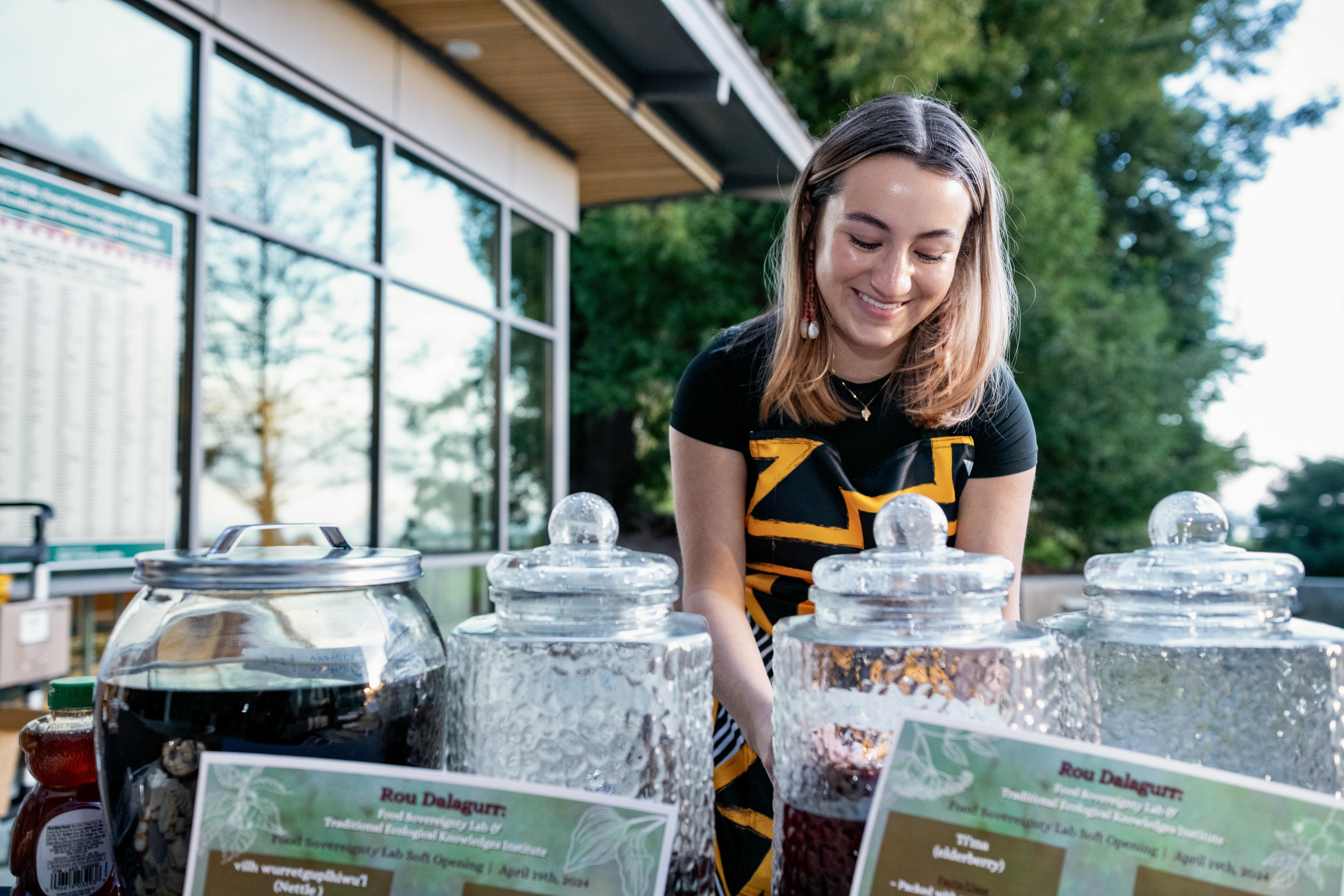Rou Dalagurr Food Sovereignty Lab
Support the Rou Dalagurr Food Sovereignty Lab and Traditional Ecological Knowledges Institute at Cal Poly Humboldt!
Support the Rou Dalagurr Food Sovereignty Lab and Traditional Ecological Knowledges Institute at Cal Poly Humboldt!
Cal Poly Humboldt Giving Day 2025 · 2 April 2025 ·
The goals of the Rou Dalagurr Food Sovereignty Lab and Traditional Ecological Knowledges Institute align seamlessly with Cal Poly Humboldt’s polytechnic designation. As outlined in the Polytechnic Prospectus, the university strives to be a “model and leader for others across the country and globe” and “believe[s] in working directly with tribal communities.”
Rou Dalagurr provides hands-on learning opportunities for students by training them to engage with tribal communities. These programs enhance experiences for students of all backgrounds, and they support recruitment, enrollment, and retention, serving as a model for institutions worldwide.
Understanding food sovereignty requires recognizing the historical impacts of colonization on the Indigenous nations of this region. Genocide was carried out by severing the connection between people and their culture. The forced separation of native people from their traditional food sources was a political goal to enact genocide against those communities, as “disrupting Native relationships with the land ‘not only created physical hardship” but “also bankrupted many meaning structures that informed identity and mechanisms of socio-cultural reproduction and control.”
As stated in the Declaration of Nyéléni, there are six proposed principles of food sovereignty: focusing on food for people, valuing food providers, localizing food systems, making decisions locally, building knowledge and skill, and working with nature. According to Dr. Cutcha Risling Baldy and Dr. Kaitlin Reed, the Co-Directors of the Food Sovereignty Lab, food sovereignty is also about centralizing Indigenous voices in collectively moving forward in building sustainable food systems. Therefore, revitalizing traditional food sources through Indigenous food sovereignty is critical to building food sovereignty in our region and beyond while also reawakening and healing Native relationships with the land.

Charities pay a small fee for our service. Learn more about fees